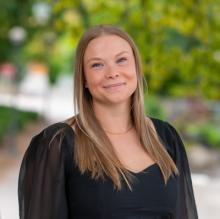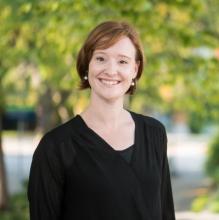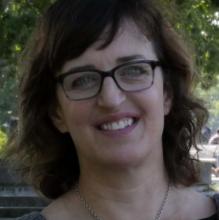The burden of HCV disproportionately affects rural communities especially those affected by health service inequity. Without intervention these factors may continually prevent diagnosis and linkage of patients with care. We propose to equip a mobile clinical laboratory which offers voluntary, confidential and high quality HCV diagnostic tests to rural Canadian communities.
Research Description
Surveillance for chronic Hepatitis C virus (HCV) infection misses millions of cases worldwide. In Canada the virus causes a silent epidemic with roughly half of the infected persons unaware or undiagnosed. The burden of HCV disproportionately affects rural communities especially those affected by health service inequity. Examples of inequity include, small health service catchment areas, distance from a clinical laboratory or lack of experienced and diverse primary care providers. Without intervention these factors may continually prevent diagnosis and linkage of patients with care. We propose to equip a mobile clinical laboratory which offers voluntary, confidential and high quality HCV diagnostic tests to rural Canadian communities. This strategy will help alleviate health service inequity, educate community members about Hepatitis C virus or other sexually transmitted and blood borne infections and link patients with the exemplary care offered by the British Columbia Center for Disease Control and Provincial Health Services Authority. It is time to speak out about Hepatitis C and leave no-one behind. http://www.bccdc.ca/health-info/diseases-conditions/hepatitis-c
What does being a Public Scholar mean to you?
Being a Public Scholar means having the bravery to challenge ideas by moving them from safe spaces like the classroom or textbook into action and everyday life. The misconception exists that science can only be understood and practiced by scientists. As a Public Scholar, I wish to communicate the accessibility of the scientific method and empower people to make observations, ask questions and provide answers by use of a standard or iterative tool. Scientific literacy has the power to impact day-to-day life and in landmark decisions like participatory democracy.
In what ways do you think the PhD experience can be re-imagined with the Public Scholars Initiative?
The Public Scholars Initiative provides doctoral students with opportunities to gain confidence in their ideas and translate learning into action. A key component of work in Public Health is communicating study based evidence to a variety of stakeholders. The PSI, provides the opportunity to practice building and communicating to a network of clinical, patient, government and industry groups. I am excited by the opportunity to bring research to life!
How do you envision connecting your PhD work with broader career possibilities?
I think that increasing population density, interconnectedness, and complexity of the modern world will make strong Public Health Systems critical in the 21st century. The battle to contain Ebola virus in West and equatorial Africa, emergence of Zika virus and migration of populations in response to climate change exemplify some of the changes and evolving threats society can expect to face. When people ask, "what an epidemiologist does?" I respond, "epidemiology offers a toolkit to reduce a complicated problem into its core components". I look forward to applying skills learned at the School of Population and Public Health towards tackling complicated problems, teasing out the cause and suggesting interventions.
How does your research engage with the larger community and social partners?
The process of the proposed research starts with the support of Dr. David Patrick, Dr. Agatha Jassem, Dr. Troy Grennan, Dr. Naveed Janjua, Dr. Mel Krajden and the BC Center for Disease Control (BCCDC). The BCCDC and Provincial Health Services Authority offer exceptional health care services to British Columbians. In Canada, geographic disparity may interrupt care as patients living in urban centers have easier access to services than those in more remote rural communities. Our research aims to outsource clinical diagnostic testing for sexually-transmitted and blood-borne infections (STTBI) to rural communities or those with high transmission rates and case volume. This effort requires engagement with community partners (i.e. harm reduction sites or those with lived experience) and industry partners (i.e. commercial diagnostic test developers). The strategy hinges on decreasing time from administration of a diagnostic test to care and reaching stigmatized, isolated or peripheral populations. We hypothesize, point of care testing will aid micro-elimination efforts for diseases like Hepatitis C virus, where many infected persons remain undiagnosed and treatment leads to cure.
Why did you decide to pursue a graduate degree?
Prior to enrolling in doctoral studies at the University of British Columbia, I completed a Master of Science degree in molecular genetics and microbiology at the University of Manitoba and National Microbiology Laboratory. I was the beneficiary of working with world class researchers on global scale problems like the emergence of the Middle East Respiratory Syndrome (1) or West Africa Ebola epidemic (2). This environment instilled in me a strong social responsibility to use my education for the public good. The decision to continue my studies at UBC was driven by this social responsibility and a lifelong passion for microbiology. Before applying, I rotated through several other jobs including work at a craft brewery and as a kayak guide, rarely did I go a day without thinking about the microbial communities present in a drop of ocean water or pale ale. Doctoral study in Population and Public Health offers the opportunity to continually pursue excellence and translate my training in Virology to protect and promote public health. 1. Nikiforuk, A. M. et al. Rapid one-step construction of a Middle East Respiratory Syndrome (MERS-CoV) infectious clone system by homologous recombination. J. Virol. Methods 236, (2016). 2. Nikiforuk, A. M., Cutts, T. A., Theriault, S. S. & Cook, B. W. M. Challenge of Liquid Stressed Protective Materials and Environmental Persistence of Ebola Virus. Sci. Rep. 7, 4388 (2017).
Why did you choose to come to British Columbia and study at UBC?
I decided to study at UBC because of the School of Population and Public Health’s curriculum and the resources, expertise and leadership of the BCCDC. I am appreciative of the opportunities provided by my mentors, UBC and the PSI to further my education and practice public health research.
Being a Public Scholar means having the bravery to challenge ideas by moving them from safe spaces like the classroom or textbook into action and everyday life. As a Public Scholar, I wish to communicate the accessibility of the scientific method and empower people to make observations, ask questions and provide answers by use of a standard or iterative tool.




